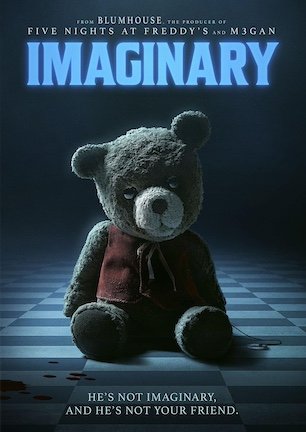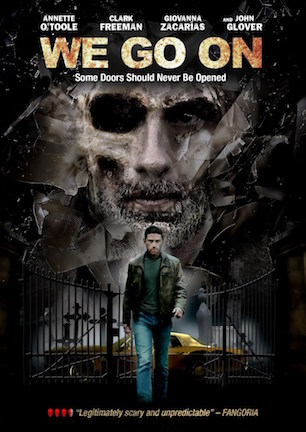Studio: IFC Midnight
Director: Can Evrenol
Writer: Can Evrenol, Cem Ozuduru, Ogulcan Eren Akay, Ercin Sadikoglu
Producer: Mo Film
Stars: Gorkem Kasal, Ergun Kuyucu, Muharrem Bayrak, Mehmet Fatih Dokgoz, Sabahattin Yakut, Mehmet Cerrahoglu
Review Score:
Summary:
Five Turkish police officers enter an inescapable nightmare after disturbing a dark ritual in an abandoned building.
Review:
After catching the 2013 short film “Baskin,” Eli Roth contacted Turkish filmmaker Can Evrenol and asked if he had a script for a feature-length version of the story. Evrenol claimed he did, but it would take 10 days to translate. He and three co-writers then hunkered down for eight days to pound out said screenplay, translated it in two, and turned Evrenol’s little white lie into a half-truth sprinting from first draft to final cut in just four months.
“Baskin” pinged the radars of many genre fans dialed into festival circuit buzz during the latter half of 2015. Following a reportedly raucous debut during TIFF’s Midnight Madness, the movie continued wowing and wooing at Fantastic Fest and Sitges. By the time it returned to the U.S. for AFI Fest, “Baskin” racked up enough championing cheers for the title to become synonymous with “I have to see this for myself” horror instead of only the first half of an ice cream chain name.
No doubt about it, the movie demands to be noticed. “Baskin” is devilish, dirty, grim, gritty, bloody, brutal, violent, and at times, repulsive. Yet seeing those adjectives up on the screen at AFI Fest, a festival with only three Midnight movies in a lineup otherwise heavy on arthouse indies and celebrity-attended galas, I couldn’t help but think its inclusion was based on a traditional festival programmer considering its content to be culturally subversive strictly because it comes from Turkey and has subtitles.
If the film were set in America and filmed in English, mainstream media and conservative critics would dismiss it as depraved “torture porn” despite having an artier aesthetic than most movies in that category. “Baskin” is interesting to a degree, but this is a case where overseas origins provide an imaginary edge of avant-garde exoticness the movie doesn’t fully possess.
“Baskin” is the story of a Turkish police team caught in a possible purgatory when called to a crime scene in a rural neighborhood known for rumors of occult activity. There, they descend into a hellish nightmare involving blood-soaked orgies, dismemberment, mutilation, and more satanic imagery than a King Diamond concert.
Director and co-writer Can Evrenol explained in a post-screening Q&A that the police officers are not being punished for any particular crimes and are meant to relate as a “this could happen to anyone” experience. They were written to be immature and uneducated. There is a definite lost in translation element to this intention as the five men are introduced in a scene where they share in a story of sex with a transvestite prostitute before going all “Goodfellas” Joe Pesci on a boy who chuckles along with them. Evrenol addressed their confusing characterization by mentioning that the Canadian audience at TIFF asked why the men were portrayed as “dickheads” while a Turkish crowd applauded the apparent hilarity in their buffoonish behavior. If you’re of North American descent, particularly given current climates regarding perception of poor police behavior, expect to fall on the “dickheads” side of how to take the fivesome.
Surviving the subdued dreaminess of the film’s quieter first two acts becomes additionally taxing due to this dislike for the loudmouth quintet. A lot happens in “Baskin” without really arriving anywhere and poor protagonists don’t punch the ticket of anyone eager to take the trip into this crimson-colored vision of “The Twilight Zone.”
Once act three kicks off with the cops inadvertently interrupting a bonkers Black Mass, “Baskin” begins buttering its bread in earnest, spreading on splatter with thick-cut pats of disemboweled entrails, severed limbs, and forced sex involving a woman wearing an animal skull. Even those with an inclination towards gagging can become entranced by the presence of Mehmet Cerrahoglu as the cult’s diminutive High Priest. Cerrahoglu’s physicality and balletic movements mesmerize in a manner commanding eyes to come back to the screen after initially turning away in disgust.
For as spellbinding as the climax is however, finding compelling context motivating this superficial appeal is a challenge. Remembering that “Baskin” began life as an 11-minute movie, it appears even more like an extension of a limited idea without legs to impress on a level other than appearance.
“Baskin” is a great-looking movie made with extraordinary attention to atmosphere full of imagery disturbing for being haunting or alternatively grotesque. The score hypnotizes with similarly inconsistent scalability, employing a moody “Silent Hill” motif in its music before burdening the climax with repeated and sustained bass rumbles (bommm… bommm… bommm…).
What these sights and sounds amount to other than a visually-arresting experience of variable value when it comes to horror entertainment or metaphoric meaning is open to interpretation. Perhaps a possibly misguided film fest curator could better explain any substantive merit beyond being an occasionally intriguing foreign fright film.
Review Score: 60







If you want to see impossible amounts of blood explode crimson colors like the world’s worst version of a gender reveal, well, “Abigail” at least has that.